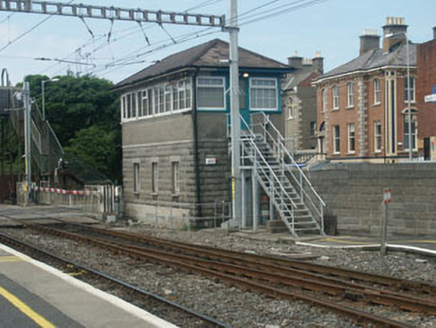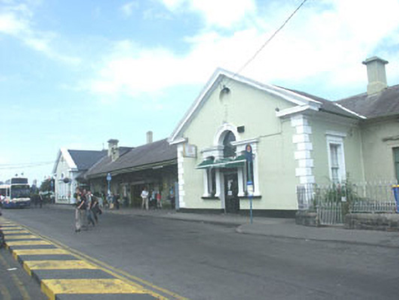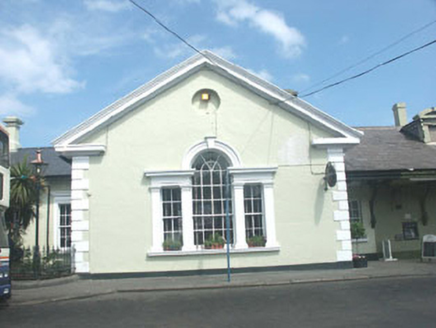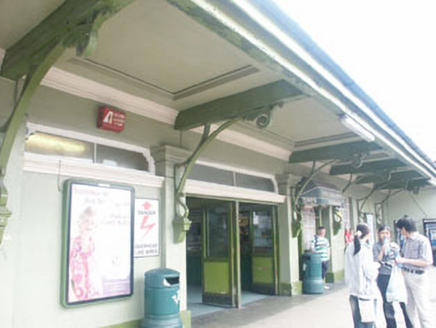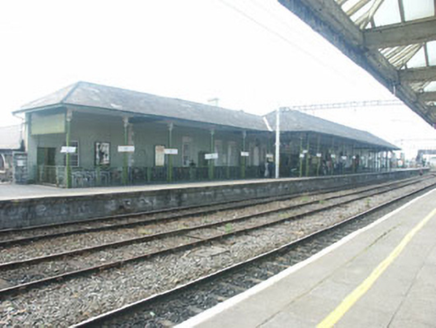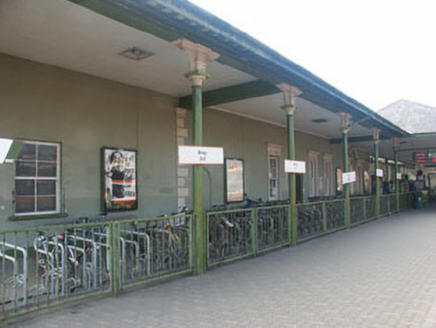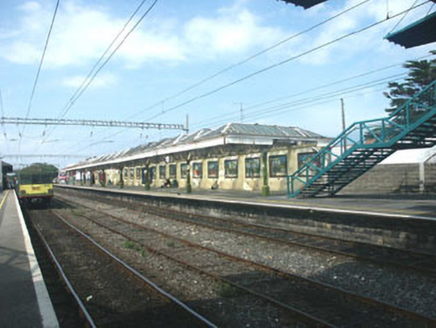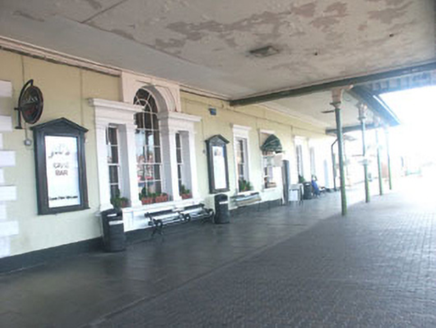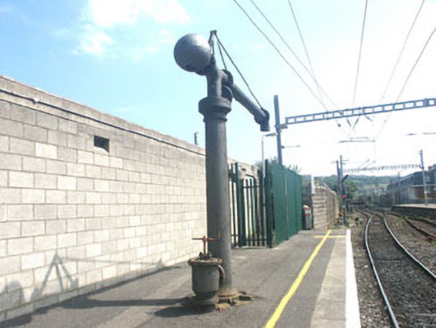Survey Data
Reg No
16301269
Rating
Regional
Categories of Special Interest
Architectural, Artistic, Technical
Original Use
Railway station
In Use As
Railway station
Date
1850 - 1855
Coordinates
326945, 218768
Date Recorded
24/06/2003
Date Updated
--/--/--
Description
Detached multiple bay single-storey with attic Italianate railway station, built in 1854 to designs by George Wilkinson. The building has a long irregular plan form with a symmetrical central section made up of with a long veranda-like entrance porch flanked by gabled projecting bays. Beyond these are long wings of varying length, that to the south slightly shorter, with a toilet pavilion to the north end which is detached from the actual station, but linked to it by a wall. The wing to the north was extended and the toilet pavilion added c.1995. To the east (track-facing) side of the building there is a large open waiting area, with the roof supported on cast-iron columns with decorative capitals. The façade is finished in painted render with moulded alternating quoins, moulded window surrounds and a moulded eaves course. The eaves course to the projecting bays has been arranged in the form of a broken pediment. The overhanging double-pile pitched roof has hipped and gable-ended sections and is slated, with the overhang forming the veranda-like entrance porch supported on decorative iron brackets. The entrance itself consists of a broad opening with replacement timber and glazed folding doors, and a broad two-pane fanlight. The windows are mainly flat-headed and filled with six over six timber sash frames, however each of the projecting bays has a Palladian window, with some similar windows to the east elevation. The flat-headed windows have simple moulded surrounds with entablatures with cornice-like hoods, whilst the Palladian windows have slightly more ornate surrounds with pilaster-like jambs. One of the latter windows has been converted to a doorway. Cast-iron rainwater goods. The station faces out onto a large open bus / car-parking area. Elsewhere, the station has retained some other original structures, including a long, largely open, waiting pavilion on the other side of the tracks.
Appraisal
Generally well preserved early Victorian railway station in the Italianate style much favoured by the railway companies during that period. One of Bray’s most memorable public buildings, and a historically important one considering the railways role in the development of the town.
